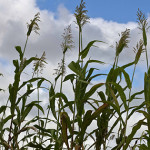Marketing to farmers is no easy task. More than most, the agriculture industry is subject to rapid change from year to year. Market conditions and other variables in the industry can also shift drastically from season to season, forcing a complete overhaul of your B2B strategy at a moment’s notice.
While agricultural marketing can be challenging, there are some marketing fundamentals that apply to all market segments, from farmers to fitness club owners. These fundamentals include the following:
- Marketing strategy, tactics and media must match the sales cycle
- Buyer responses are emotional, not rational
- Budgets must always go further than the last fiscal year
The best way to market to farmers and gain quality agriculture leads is to really get to know farmers and understand what they face on a day-to-day basis. By doing this, you can tailor your B2B strategy to fit their needs.
The first thing to understand about the agriculture industry is that it has changed drastically in the last quarter century. Production farming today is capital-intensive and driven by technology. Farmers also face a more volatile marketplace, constantly-increasing state and federal regulations, and unpredictable weather (when it comes to farming, some things never change).
While farming is a business, that doesn’t mean it is any less of a lifestyle than it was in years past. Never forget that farmers are stewards of the land and anything to do with the land is very important to them.
Another challenge of marketing to farmers is that they are very loyal. That means their purchasing decisions can be very emotional. Despite logical proof that you provide a better product or price, the loyalty of most farmers makes it hard for them to switch dealers or brands. Of course, this can also work in your favor in that if you do establish a good working relationship with a farmer, chances are you can count on that relationship to last.
While marketing to farmers can be a daunting task, it is certainly not impossible and well worth the effort. The best way to engage with farmers is to always seek to gain a practical understanding of their business, keep in touch with them over the long term, and bring them information that is of value to their operation.


